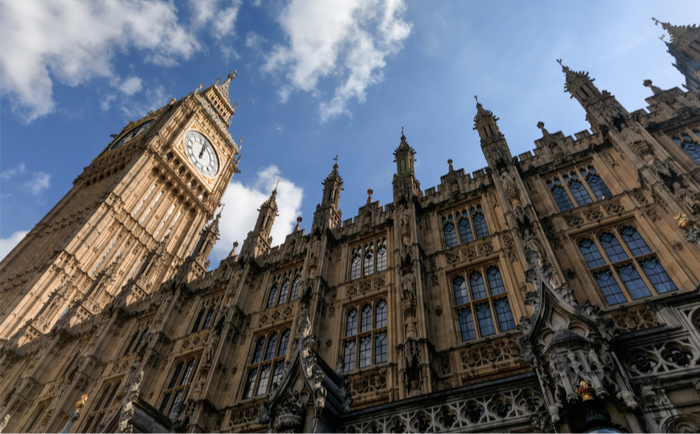The UK government moved this week to offer reassurance that it remains committed to new sustainability disclosure requirements (SDRs) as part of the Treasury’s Green Finance Strategy—a key plank in the drive towards net zero carbon emissions in the UK.
A flagship measure in the SDRs was to have UK companies report publicly on their transition plans for reaching “net zero” carbon emissions. But a report in the Financial Times this week claimed that the plan had been dropped from the Queen’s Speech at the last minute and was now delayed.
A government spokesman said SDRs had had never been part of the finance bill outlined in the speech. “We are committed to implementing sustainability disclosure requirements and will proceed with the necessary legislation in due course,” he said.
The SDRs form Phase 1 of the Green Finance Strategy, a central element in the government’s plan for reaching net zero launched by chancellor Rishi Sunak in October last year ahead of the COP26 meeting in Glasgow. Phase 2 sees use of SDR information by investors who then then shift “financial flows” to align with the UK’s net zero carbon commitments (phase 3).
Transition plans
The SDRs are mainly focused on the introduction of TCFD (Task Force on Climate-related Financial Disclosure) rules for UK premium-listed companies, which is already underway.
But publication of transition plans was pitched as a major policy initiative last year by the chancellor. This week a consultation was launched on plans to develop what the Treasury bills as a “gold standard” for transition planning.
Some companies, notably Unilever, have already gone public with transition plans, but many are still to make the leap.
Reporting has been seen as a critical tool forcing companies to disclose their efforts and readiness for climate change preferred by policymakers and regulators. TCFD reporting was launched in 2017 by a taskforce of the G20 and was at first voluntary. The UK was the first country to launch a process to make the framework mandatory.
In an introduction to the Green Finance Strategy, the chancellor said: “Investors and businesses must have the information they need to understand the full range of environmental risks they face and create.
“That information should be a key component of every investment decision and the strategy of every business. Climate and environmental considerations should be central to the decision-making process of every UK board and every investor’s risk and return calculations.”
Premium listed companies already face reporting using TCFD guidelines for financial years beginning on or after January 2021, as part of listing rules. Standard listed companies follow for accounting periods beginning on or after 1 January this year.
Sustainability standards
Meanwhile, work is also continuing on the new climate risk reporting standards by the International Sustainability Standards Board (ISSB), launched at COP26.
The government says it will “rally” other countries around the project. Initial proposal climate reporting proposals from the ISSB are largely based on TCFD, though the body is expected to move on to reporting standards for other sustainability issues.
The Financial Conduct Authority has already begun its response to the Green Finance Strategy by launching a consultation on new sustainability disclosure rules for investors.
Meanwhile, the European Union is pushing ahead with both new sustainability reporting rules and mandatory human rights and sustainability due diligence.
Even the US is pushing ahead with mandatory climate risk reporting rules under President Joe Biden.
Back in the UK, the SDRs may have hit a snag, and securing Phase 1 will be important for moving on to following phases if finance is to be greened, as intended by the Treasury. The UK’s legislative agenda will have to find room for SDRs soon.





